Filter by
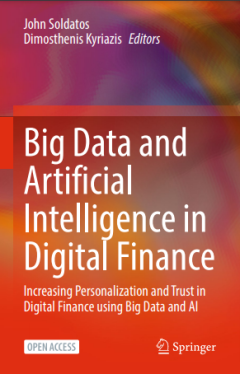
Big data and artificial intelligence in digital finance : increasing personal…
This open access book presents how cutting-edge digital technologies like Big Data, Machine Learning, Artificial Intelligence (AI), and Blockchain are set to disrupt the financial sector. The book illustrates how recent advances in these technologies facilitate banks, FinTech, and financial institutions to collect, process, analyze, and fully leverage the very large amounts of data that are now…
- Edition
- -
- ISBN/ISSN
- 9783030945909
- Collation
- xxiii, 363p.
- Series Title
- -
- Call Number
- 332.640285 BIG b
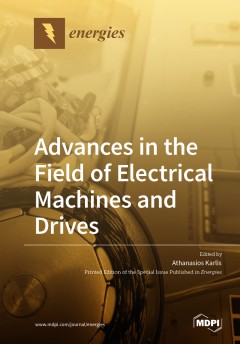
Advances in the field of electrical machines and drives
Electrical machines and drives dominate our everyday lives. This is due to their numerous applications in industry, power production, home appliances, and transportation systems such as electric and hybrid electric vehicles, ships, and aircrafts. Their development follows rapid advances in science, engineering, and technology. Researchers around the world are extensively investigating electrica…
- Edition
- -
- ISBN/ISSN
- 9783036542867
- Collation
- ix, 240p.; ill.
- Series Title
- -
- Call Number
- 621.31042 KAR
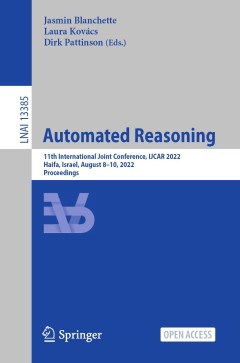
Automated reasoning
This volume, LNAI 13385, constitutes the refereed proceedings of the 11th International Joint Conference on Automated Reasoning, IJCAR 2022, held in Haifa, Israel, in August 2022. The 32 full research papers and 9 short papers presented together with two invited talks were carefully reviewed and selected from 85 submissions. The papers focus on the following topics: Satisfiability, SMT Solving…
- Edition
- 1
- ISBN/ISSN
- 9783031107696
- Collation
- xv; 756 PG; ill.
- Series Title
- Lecture Notes in Computer Science
- Call Number
- 006.3 AUT a

The afterlife of the Shoah in Central and Eastern European cultures : concept…
The Afterlife of the Shoah in Central and Eastern European Cultures is a collection of essays by literary scholars from Germany, the US, and Central Eastern Europe offering insight into the specific ways of representing the Shoah and its aftereffects as well as its entanglement with other catastrophic events in the region. Introducing the conceptual frame of postcatastrophe, the collected es…
- Edition
- -
- ISBN/ISSN
- 9781003050544
- Collation
- xii ; 360p : ill.
- Series Title
- -
- Call Number
- 808.80358405318 THE t
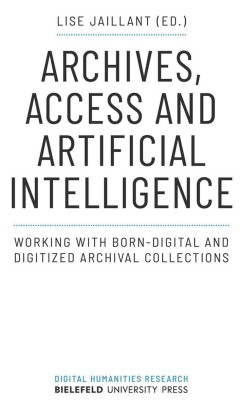
Archives, access and artificial intelligence
Digital archives are transforming the Humanities and the Sciences. Digitized collections of newspapers and books have pushed scholars to develop new, data-rich methods. Born-digital archives are now better preserved and managed thanks to the development of open-access and commercial software. Digital Humanities have moved from the fringe to the center of academia. Yet, the path from the apprais…
- Edition
- -
- ISBN/ISSN
- 9783839455845
- Collation
- 221p : ill.
- Series Title
- -
- Call Number
- 000 ARC a

Periodization in the art historiographies of central and eastern europe
This volume critically investigates how art historians writing about Central and Eastern Europe in the late nineteenth and early twentieth centuries engaged with periodization. At the heart of much of their writing lay the ideological project of nation-building. Hence discourses around periodization – such as the mythicizing of certain periods, the invention of historical continuity and the a…
- Edition
- -
- ISBN/ISSN
- 9781000602005
- Collation
- xvii; 290 pg; ill.
- Series Title
- -
- Call Number
- 700 PER p
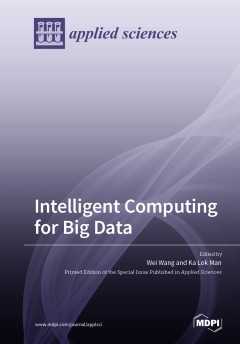
Intelligent computing for big data
Recent advances in artificial intelligence have the potential to further develop current big data research. The Special Issue on ‘Intelligent Computing for Big Data’ highlighted a number of recent studies related to the use of intelligent computing techniques in the processing of big data for text mining, autism diagnosis, behaviour recognition, and blockchain-based storage.
- Edition
- -
- ISBN/ISSN
- 9783036558783
- Collation
- vii, 90p.; ill
- Series Title
- -
- Call Number
- 371.33 INT i
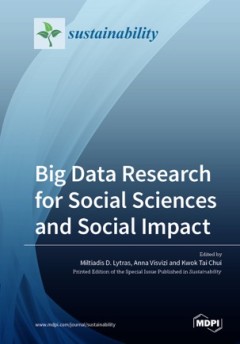
Big data research for social sciences and social impact
A new era of innovation is enabled by the integration of social sciences and information systems research. In this context, the adoption of Big Data and analytics technology brings new insight to the social sciences. It also delivers new, flexible responses to crucial social problems and challenges. We are proud to deliver this edited volume on the social impact of big data research. It is one …
- Edition
- -
- ISBN/ISSN
- 9783039282210
- Collation
- ix, 403p.; ill
- Series Title
- -
- Call Number
- 371.33 BIG b
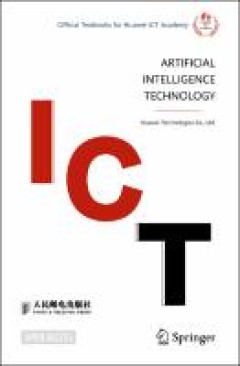
Artificial intelligence technology
This open access book aims to give our readers a basic outline of today’s research and technology developments on artificial intelligence (AI), help them to have a general understanding of this trend, and familiarize them with the current research hotspots, as well as part of the fundamental and common theories and methodologies that are widely accepted in AI research and application. This bo…
- Edition
- -
- ISBN/ISSN
- 9789811928796
- Collation
- xiii, 298p.; ill.
- Series Title
- -
- Call Number
- 006.3 ART

Particle physics reference library : volume 1:t and experiments
This first open access volume of the handbook series contains articles on the standard model of particle physics, both from the theoretical and experimental perspective. It also covers related topics, such as heavy-ion physics, neutrino physics and searches for new physics beyond the standard model. A joint CERN-Springer initiative, the “Particle Physics Reference Library” provides revis…
- Edition
- -
- ISBN/ISSN
- 9783030382070
- Collation
- ix; 631 PG; ill.
- Series Title
- -
- Call Number
- 539.72 SCH s
 Computer Science, Information & General Works
Computer Science, Information & General Works  Philosophy & Psychology
Philosophy & Psychology  Religion
Religion  Social Sciences
Social Sciences  Language
Language  Pure Science
Pure Science  Applied Sciences
Applied Sciences  Art & Recreation
Art & Recreation  Literature
Literature  History & Geography
History & Geography